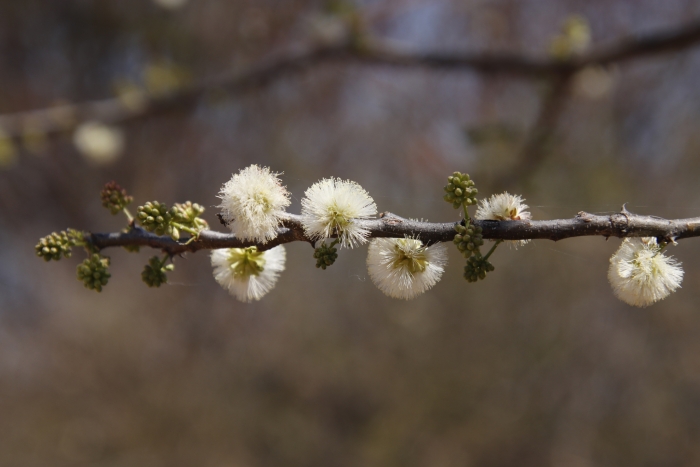Gum Acacia
(Senegalia senegal)
Gum Acacia (Senegalia senegal)
/
/

© Tony Rebelo
CC BY-SA 4.0
Image By:
© Tony Rebelo
Recorded By:
Copyright:
CC BY-SA 4.0
Copyright Notice:
Photo by: © Tony Rebelo | License Type: CC BY-SA 4.0 | License URL: http://creativecommons.org/licenses/by-sa/4.0/ | Uploader: tonyrebelo | Publisher: iNaturalist |






















Estimated Native Range
Summary
Senegalia senegal, commonly known as gum acacia or gum arabic tree, is a deciduous tree native to arid and semi-arid regions of Sub-Saharan Africa, including the Sahel, as well as parts of Oman, Pakistan, and western coastal India. It typically grows to a height of 16-39 feet (5-12 meters) with a trunk diameter of up to 12 inches (30 cm). The tree’s form is often spindly or shrubby, with a light crown that allows sunlight to penetrate to the ground. It produces small, yellow to creamy-white flowers in spherical heads, which are moderately showy and bloom during the rainy season. The bark is gray to black and may exude gum arabic when incised.
Gum acacia is valued for its production of gum arabic, a natural emulsifier and stabilizer used in the food industry, as well as in crafts and cosmetics. The tree’s ability to fix nitrogen enhances soil fertility, making it useful in agroforestry systems and crop rotations in nutrient-deficient soils. It is also used for reforestation projects and erosion control due to its drought tolerance. In cultivation, gum acacia requires well-drained soils and thrives in full sun. It is relatively low-maintenance once established but may be susceptible to pests like the acacia gall rust. While it is not commonly grown in ornamental horticulture, it can be used for shade in dry, hot climates.CC BY-SA 4.0
Gum acacia is valued for its production of gum arabic, a natural emulsifier and stabilizer used in the food industry, as well as in crafts and cosmetics. The tree’s ability to fix nitrogen enhances soil fertility, making it useful in agroforestry systems and crop rotations in nutrient-deficient soils. It is also used for reforestation projects and erosion control due to its drought tolerance. In cultivation, gum acacia requires well-drained soils and thrives in full sun. It is relatively low-maintenance once established but may be susceptible to pests like the acacia gall rust. While it is not commonly grown in ornamental horticulture, it can be used for shade in dry, hot climates.CC BY-SA 4.0
Plant Description
- Plant Type: Tree
- Height: 15-30 feet
- Width: 15-25 feet
- Growth Rate: Moderate
- Flower Color: Yellow
- Flowering Season: Spring
- Leaf Retention: Deciduous
Growth Requirements
- Sun: Full Sun
- Water: Low
- Drainage: Medium, Fast
Common Uses
Drought Tolerant, Edible*Disclaimer: Easyscape's listed plant edibility is for informational use. Always verify the safety and proper identification of any plant before consumption., Erosion Control, Low Maintenance
Natural Habitat
Native to arid and semi-arid regions of Sub-Saharan Africa, the Sahel, parts of Oman, Pakistan, and western coastal India
Other Names
Common Names: Gum Arabic Tree, Sudan Gum-Arabic, Gum-Arabic, Kher, Three-Thorn Acacia
Scientific Names: , Senegalia senegal, Acacia cufodontii, Acacia glaucophylla, Acacia kinionge, Acacia oxyosprion, Acacia platyosprion, Acacia pseudoglauca, Acacia pseudoglaucophylla, Acacia rupestris
GBIF Accepted Name: